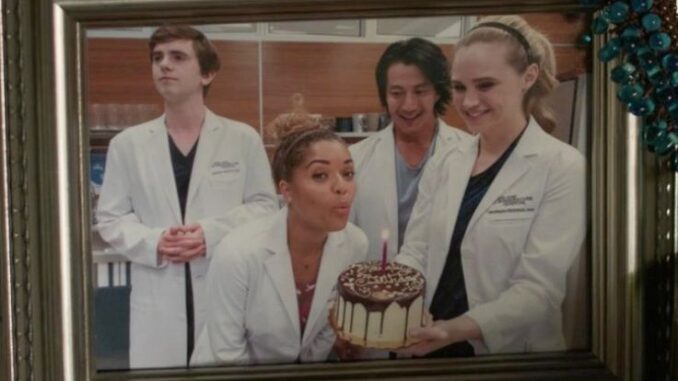
Freddie Highmore’s performance as Shaun Murphy is the soul of The Good Doctor. Shaun is not your typical TV doctor. His autism and savant syndrome give him a unique lens through which he views the world, allowing him to spot medical solutions that others overlook. Yet, his journey is as much about navigating the complexities of human connection as it is about saving lives. Highmore’s acting is a masterclass in nuance, capturing Shaun’s intellectual brilliance with pinpoint accuracy while conveying his emotional vulnerability with heart-wrenching authenticity. Every glance, every hesitant pause, every moment of quiet triumph feels so real that you can’t help but be drawn into Shaun’s world. Highmore’s preparation for the role, including extensive research into autism, ensures that Shaun’s portrayal is respectful, layered, and never stereotypical, making him a powerful symbol of neurodiversity.
Highmore’s performance is a revelation, building on his already impressive career in projects like Bates Motel and Finding Neverland. In The Good Doctor, he elevates the role of Shaun to something truly unforgettable. Whether he’s unraveling a complex medical puzzle with his photographic memory or struggling to express his feelings to a friend, Highmore brings a depth that makes Shaun both extraordinary and relatable. His physicality—subtle mannerisms like Shaun’s fidgeting hands or averted gaze—adds authenticity, while his emotional range brings heart to every scene. Highmore’s dedication extends beyond acting; as an executive producer, he helps shape the show’s direction, ensuring Shaun’s story remains true to its core. This commitment shines through, making his performance a cornerstone of the series’ success.
The supporting cast enriches The Good Doctor’s world, creating a dynamic ensemble that complements Highmore’s brilliance. Christina Chang as Dr. Audrey Lim brings strength and compassion, often serving as a mentor to Shaun while navigating her own challenges. Will Yun Lee as Dr. Alex Park adds warmth and humor, balancing the intensity of the hospital setting. Characters like Dr. Aaron Glassman (Richard Schiff), Shaun’s mentor and father figure, and Lea (Paige Spara), his love interest, deepen the show’s exploration of relationships. These interactions highlight the series’ central theme: that understanding and acceptance can bridge even the widest divides. Highmore’s chemistry with the cast makes every moment—whether a heated debate in the boardroom or a quiet gesture of support—feel authentic and impactful.

The storytelling in The Good Doctor is a perfect blend of intellect and emotion. Each medical case is meticulously crafted, offering viewers a glimpse into the high-pressure world of medicine while exploring universal themes like love, loss, and perseverance. The show doesn’t shy away from tough topics, tackling issues like workplace bias, mental health, and the challenges of living with a disability. Yet, it never feels heavy-handed. Instead, it uses Shaun’s perspective to challenge stereotypes and spark meaningful conversations. Highmore’s ability to convey Shaun’s unique way of thinking—visualizing medical solutions as intricate patterns—makes these moments both fascinating and accessible, drawing viewers into his mind.
Visually, The Good Doctor is a feast for the senses. The show’s cinematography is innovative, using dynamic camera work to illustrate Shaun’s thought process. Close-ups of Highmore’s expressive face during moments of realization or emotional breakthroughs create an intimate connection with the audience. Scenes in the operating room are tense and gripping, while quieter moments—like Shaun’s interactions with patients or friends—are shot with warmth and care. The soundtrack, with its blend of soaring orchestral scores and delicate piano melodies, amplifies the emotional weight of every scene. Together, these elements create an immersive experience that makes you feel every high and low of Shaun’s journey.
The Good Doctor is also a powerful advocate for representation. By placing a character with autism at the center of the story, the show challenges preconceived notions and celebrates the value of diverse perspectives. Shaun’s journey isn’t defined by his diagnosis but by his determination to prove himself in a world that often underestimates him. This resonates deeply with audiences, many of whom see their own struggles reflected in Shaun’s story. The show’s message—that everyone has something unique to offer—has made it a global touchstone, inspiring viewers to embrace differences and champion empathy.
